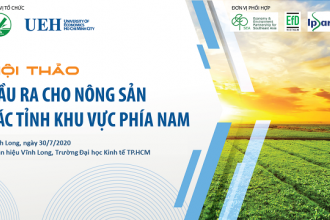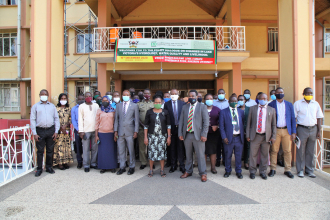EfD-Mak Centre at a glance (2019-2020)
The Environment for Development initiative (EfD-Mak) centre Uganda started its full operation in the Financial year 2019-2020. The center went through a full process of institutionalization and…
The Environment for Development initiative (EfD-Mak) centre Uganda started its full operation in the Financial year 2019-2020. The center went through a full process of institutionalization and…
Ethiopia has ambitious plans to transition towards a green economy. Meet Dawit Woubishet Mulatu, a researcher at the Environment and Climate Research Center (ECRC), EfD Ethiopia. He spoke with us

On the last October 2020, the Economy & Environment Partnership for Southeast Asia (EEPSEA) and Environment for Development in Vietnam (EfD-Vietnam) together held a live "forum" for scientific…

The Southern region has been proven to be a fast-growing agricultural area. The restructuring of crops and livestock is providing opportunities for agricultural market development to improve…
Key Messages
Lake Victoria Basin is facing a number of challenges:

The end of year EfD-Mak Centre policy dialogue was held on 16th December, 2020 at Makerere University Senate Conference Hall. The policy dialogue attracted over 60 participants drawn from the members…

EfD Uganda hosted a policy meeting at Makerere University in December 2020. High-level policymakers, researchers, and representatives from the private sector, over 60 people in all, participated…
KEY MESSAGES
Sustainable and efficient governance and utilization of natural resources requires:
1. Transparency, accountability, rule of law, inclusive participation and cooperation of all stakeholders and actors in natural resources. 2. Balancing economic, social and environmental goals in all government programs and plans including private investments.